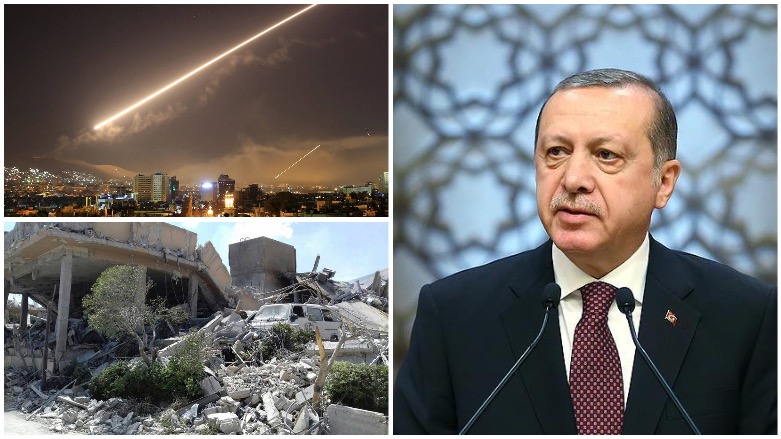Turkey welcomes strikes, says ‘unthinkable' to leave Syrian gas attack unanswered

ERBIL (Kurdistan 24) – Turkish Presidential spokesperson Ibrahim Kalin said on Saturday that failing to respond militarily to a recent suspected poisoned gas attack in the Syrian town of Douma would have been “unthinkable."
Kalin’s remarks came after joint air strikes conducted by the US, UK, and France targeted alleged chemical weapons facilities in Syria.
“Using chemical weapons is a violation of international law and a crime against humanity,” Kalin said in a statement.
“It would have been unthinkable to leave the Syrian regime - understood to have conducted a chemical attack in Douma on April 7 - unanswered. Those who are responsible for this heinous attack should pay the price.”
On Friday, the US announced that it had “very high confidence” that the Syrian government was responsible for the recent suspected chemical attack in Douma.
The Turkish spokesperson also called on the international community to unite to prevent Syria's future use of chemical weapons.
“Efforts to only destroy chemical weapons will not be enough to end the instability in the region. The goal should be ending the war in Syria… Prevention of all the massacres conducted through conventional and chemical weapons depends on providing a political solution in Syria as soon as possible,” Kalin added.
Turkish Deputy Prime Minister Bekir Bozdag told reporters that Turkey was informed about the US-led air strikes, and rejected the use of the Turkish Incirlik air base for the military raid in Syria.
Turkey's Foreign Ministry also released a statement, labeling the air strikes as an “appropriate response.”
The ministry stated that the air strikes were important to make sure that “such crimes do not go unpunished and that accountability is ensured in order to prevent the recurrence of similar crimes.”
Editing by John J. Catherine

